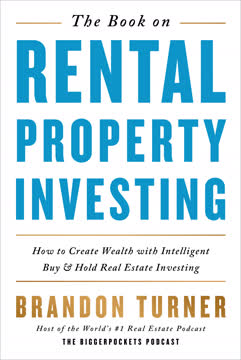Key Takeaways
1. Real estate offers unparalleled leverage and financial advantages
Banks want to give you money. Let them give it to you!
Leverage is powerful. With real estate, you can control large assets using a small amount of your own capital. For example, a $100,000 investment can potentially buy a $1 million property using a 90% mortgage. This magnifies returns significantly compared to other investments.
Tax advantages are substantial. Depreciation allowances often create paper losses even when the property is cash-flow positive. This can reduce your overall tax burden and increase after-tax returns. Additionally, you can refinance properties to access equity without triggering capital gains taxes.
Value-add opportunities abound. Unlike stocks or bonds, you can actively increase a property's value through improvements and better management. Simple changes like adding a carport or renovating a commercial space can dramatically boost rental income and property value.
2. The 100:10:3:1 Rule: Real estate investing is a numbers game
Look at a lot, and you will find some gems. Look at just a few, and you will find evidence to support the theory that "all the good ones have been taken."
Volume is crucial. To find one great deal, you typically need to look at about 100 properties, make offers on 10, arrange financing for 3, and ultimately purchase 1. This process develops your understanding of the market and helps you recognize true opportunities.
Persistence pays off. Many novice investors give up after looking at a handful of properties. Successful investors maintain a consistent effort over time, knowing that great deals are out there but require diligence to uncover.
Develop a system. Create a efficient process for evaluating properties quickly. This might include:
- Scanning classified ads and real estate listings daily
- Building relationships with real estate agents
- Driving neighborhoods to spot potential off-market deals
- Using software to quickly analyze financial metrics
3. Analyze deals thoroughly using yield, cash-on-cash return, and IRR
Property is very forgiving of mistakes.
Understand key metrics. While yield (annual rent / purchase price) is simple, it doesn't account for leverage or expenses. Cash-on-cash return considers your actual cash investment and ongoing costs. Internal Rate of Return (IRR) provides the most comprehensive picture by factoring in projected cash flows and appreciation over time.
Use technology. Specialized real estate investment software can quickly calculate these metrics and perform sensitivity analyses. This allows you to compare properties objectively and understand how changes in variables like interest rates or vacancy rates might impact returns.
Look beyond the numbers. While financial metrics are crucial, also consider:
- Location and long-term growth prospects
- Property condition and potential for value-add improvements
- Quality of tenants and lease terms (especially for commercial properties)
- Local market dynamics and economic factors
4. Negotiate creatively and make your offers irresistible
You can write your own rules with real estate (so long as you can reach an agreement with the other party).
Be flexible in deal structure. Unlike many other investments, real estate allows for creative negotiations. Consider options like:
- Seller financing
- Lease options
- Contingencies based on obtaining specific tenants
- Agreements to make improvements before closing
Make your offer stand out. Attaching a deposit check to your offer demonstrates seriousness and can psychologically influence the seller. Even if your price is lower, a clean, quick closing might be more appealing than a higher offer with complications.
Understand seller motivations. The more motivated (or desperate) a seller is, the better deal you can potentially negotiate. Look for situations like:
- Divorce
- Job relocation
- Inherited properties
- Foreclosures or distressed sales
5. Maximize property value through strategic improvements
Wow! Where do we start?
Target high-impact, low-cost improvements. Simple changes can often dramatically increase rental income and property value. Examples include:
- Adding a carport or garage
- Upgrading kitchens and bathrooms
- Improving curb appeal through landscaping
- Converting unused space into additional rentable units
Understand market demands. Research what features tenants or buyers in your area value most. This ensures your improvements translate directly into higher rents or sale prices.
Leverage other people's money. After making improvements, refinance the property based on its new, higher value. This can allow you to recoup your investment capital (often tax-free) while still benefiting from increased cash flow and appreciation.
6. Effective property management is key to long-term success
Part of the art of being a good landlord is to be firm but fair, and friendly but not familiar.
Tenant selection is crucial. Develop a thorough screening process to find reliable, long-term tenants. This might include:
- Credit and background checks
- Employment verification
- References from previous landlords
- Clear communication of expectations and rules
Maintain properties proactively. Address maintenance issues quickly to keep tenants happy and preserve your asset's value. Build relationships with reliable contractors for common repairs.
Consider professional management. As your portfolio grows, hiring a property management company can free up your time to focus on acquiring new properties. Ensure you have clear systems in place to oversee the management company's performance.
7. Commercial properties often outperform residential investments
When you invest in residential property, you are essentially dealing with people. When you invest in commercial property, you are essentially dealing with contracts.
Commercial advantages:
- Longer lease terms (often 5-20 years)
- Triple-net leases where tenants cover expenses
- Higher potential returns due to economies of scale
- Less government interference in landlord-tenant relationships
Residential advantages:
- Easier to understand for novice investors
- More liquid market with a larger pool of potential buyers
- Simpler to finance with higher loan-to-value ratios available
Consider your goals and resources. While commercial properties can offer higher returns, they often require more capital and expertise. Start with residential if you're new to real estate, but consider transitioning to commercial as your portfolio and knowledge grow.
8. Government interference can negatively impact real estate markets
The reason why property works so well as an investment vehicle all over the world is largely because it is self-directed and self-regulated through the natural forces of supply and demand.
Be aware of local regulations. Understand rent control laws, eviction procedures, and zoning restrictions in your target markets. These can significantly impact your ability to generate returns.
Consider long-term trends. Government policies can create market distortions over time. For example, strict rent control often leads to reduced housing supply and quality as landlords have less incentive to maintain or improve properties.
Advocate for balanced policies. Get involved in local real estate organizations to help educate policymakers on the unintended consequences of overly restrictive regulations. Policies that allow for reasonable returns while protecting tenants' rights create healthier, more sustainable markets for everyone.
Last updated:
FAQ
What's "Real Estate Riches" about?
- Overview: "Real Estate Riches" by Dolf de Roos is a guide on how to build wealth through real estate investing using other people's money (OPM).
- Focus: The book emphasizes the advantages of real estate over other investment vehicles, highlighting its potential for high returns and leverage.
- Structure: It is divided into three parts: understanding the benefits of property, practical steps to invest, and advanced strategies for maximizing returns.
Why should I read "Real Estate Riches"?
- Wealth Building: It provides insights into creating wealth through real estate, a proven method for financial independence.
- Practical Advice: The book offers actionable strategies and real-world examples, making it suitable for both beginners and seasoned investors.
- Unique Perspective: Dolf de Roos shares his personal experiences and philosophies, offering a unique perspective on real estate investing.
What are the key takeaways of "Real Estate Riches"?
- Leverage: Use other people's money to maximize your investment potential and returns.
- Market Understanding: Learn to identify and capitalize on market trends and opportunities.
- Property Management: Effective management and strategic improvements can significantly increase property value and income.
How does Dolf de Roos suggest finding properties?
- Classified Ads: Look for small column ads in newspapers, often used by owner-sellers who might undervalue their properties.
- Real Estate Magazines: Use these for a quick overview of available properties, focusing on those with potential for high returns.
- Real Estate Agents: Work with multiple agents, especially those who are also investors, to access a wider range of opportunities.
What is the 100:10:3:1 Rule in "Real Estate Riches"?
- Concept: Look at 100 properties, make offers on 10, negotiate financing for 3, and successfully purchase 1.
- Purpose: This rule emphasizes the importance of volume in finding the right investment property.
- Application: It encourages perseverance and thorough research to identify the best deals.
How does Dolf de Roos recommend analyzing deals?
- Yield: Calculate the rental income divided by the purchase price, though it's a basic measure.
- Cash-on-Cash Return: Consider the net income after expenses divided by the cash invested, providing a clearer picture of returns.
- Internal Rate of Return (IRR): Use software to project future cash flows and property value changes for a comprehensive analysis.
What negotiation strategies does "Real Estate Riches" suggest?
- Creative Contracts: Include unique terms that benefit both parties, such as seller financing or leaseback options.
- Seductive Offers: Make your offer more appealing by attaching a check for the deposit, showing seriousness.
- Poker Analogy: Treat negotiations like a game of poker, where revealing too much can weaken your position.
How does Dolf de Roos view the use of Other People's Money (OPM)?
- Leverage Benefits: OPM allows you to control more property with less personal capital, increasing potential returns.
- Mortgage Options: Explore various mortgage types and lenders to find the best financing deals.
- Debt Philosophy: Embrace debt on appreciating assets like real estate, as it can lead to wealth accumulation.
What are some ways to increase property value without spending much money?
- Carport Addition: Adding a carport can significantly increase rental income and property value.
- Storage Garages: Building storage units on unused land can generate additional income and boost property value.
- Simple Improvements: Small changes like painting, landscaping, or updating fixtures can enhance appeal and value.
What are the differences between residential and commercial properties according to "Real Estate Riches"?
- Lease Length: Commercial leases are typically longer, providing more stability.
- Tenant Care: Commercial tenants often maintain and improve properties more than residential tenants.
- Management Overheads: Commercial properties generally require less hands-on management compared to residential ones.
How does government interference affect real estate markets?
- Rent Controls: Intended to protect tenants, rent controls can lead to reduced investment and housing shortages.
- Market Dynamics: Government interventions often disrupt the natural supply and demand balance, leading to unintended consequences.
- Investor Awareness: Investors should stay informed about local regulations and advocate for market-friendly policies.
What are the Eight Golden Rules of Property in "Real Estate Riches"?
- Buy Well: Make your money when you buy by securing properties below market value.
- Motivated Sellers: Always buy from sellers who are eager to sell, as they offer better deals.
- Zero Down: Aim to buy with little or no money down to maximize leverage and returns.
- Seldom Sell: Hold onto properties to benefit from long-term appreciation and avoid taxes.
Review Summary
Real Estate Riches receives generally positive reviews, with readers praising its comprehensive approach to real estate investing and practical advice. Many find it helpful for beginners, appreciating the author's insights on property valuation, financing, and management. Some criticize the book for being outdated, particularly regarding market conditions and lending practices. Others note repetitiveness and an egotistical writing style. Despite these criticisms, most readers recommend it as a solid introduction to real estate investing, highlighting its motivational aspects and actionable strategies.
Similar Books










Download PDF
Download EPUB
.epub digital book format is ideal for reading ebooks on phones, tablets, and e-readers.




